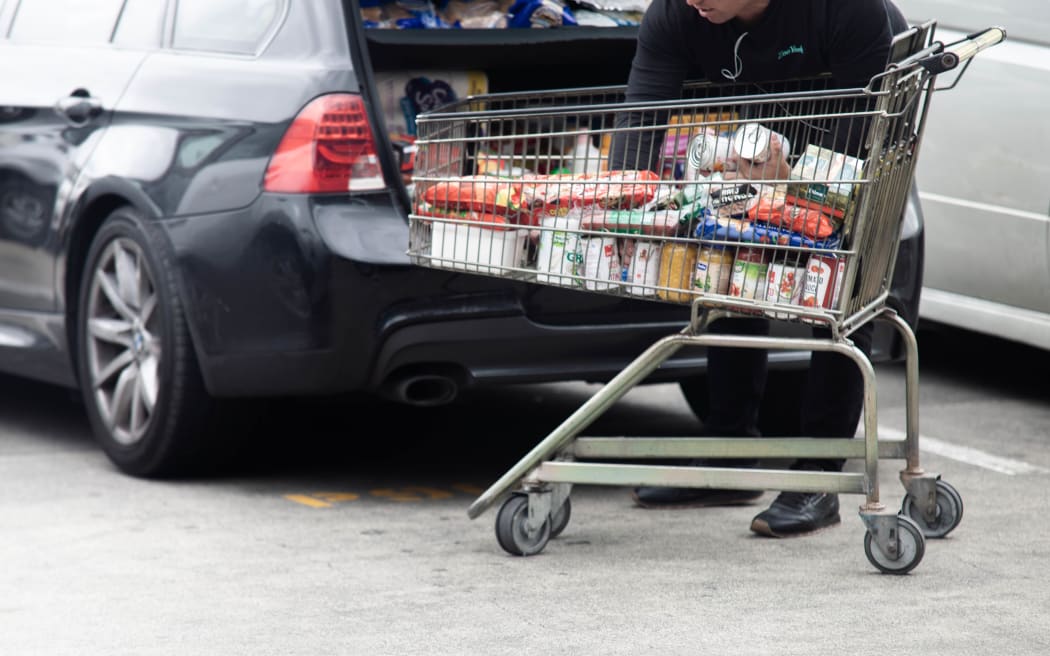An investigation into supermarket pricing should lead to better outcomes for consumers and suppliers, Consumer NZ chief executive Jon Duffy.

Photo: RNZ / Cole Eastham-Farrelly
The government announced on Tuesday that the Commerce Commission will investigate whether consumers and suppliers are getting a fair deal from supermarkets – like the review into the retail fuel market last year.
New Zealand has two major supermarket chain owners – Australian-owned Countdown and Foodstuffs (New World and Pak ‘n Save).
Duffy told Kathryn Ryan because of the small number of major retailers, New Zealand’s market is highly concentrated, leaving consumers with very little choice.
He said that leads to problems around the way in which supermarkets price their goods, how they manage discounting and how long discounts run for.
On top of that, Consumer NZ believes there’s a problem with the way supermarkets treat suppliers is also a concern.
“A supermarket contract can be make or break for a supplier, so they are really at the mercy of the demands of the supermarkets and when you think it’s not just about getting the product into the supermarket it’s also about the decisions the supermarket makes around where you get positioned on the shelf, whether you get regular specials and where you’re positioned in relation to the supermarket’s own brands, so not only are supermarkets buying from suppliers they’re also directly competing against them.
“These are all factors that need a really good looking into because the supermarkets, as goods suppliers themselves, really have a strong influence over what happens in the market and the questions is, has that influence extended too far.”
Duffy said because the sector has so many moving parts to it, it is hard to pinpoint exactly where a problem may lie.
However, he said there are enough signs to indicate there are problems with pricing, evidenced by the Government’s decision for an investigation.
Duffy said anecdotally, Consumer NZ has found what’s referred to as the ‘Briscoes effect’ happening within supermarkets – where an item is on sale for so long that it creates the question ‘is this product really on special or is this the actual price for the item?’.
“We see that a lot and we recently did some market surveys across both chains and found both chains were guilty of discounting in that way and there’s also the way products are described on the shelf, so regular low price or super saver, some people that will mean that’s actually a discounted price because its different from a product that has no label just a dollar figure, but actually there’s often not a discount connected with those prices.
“So, it’s very, very murky and it’s very hard for the consumers to navigate their way through the myriad of terms they’re being bombarded with when they shop online or in the store.”
Duffy said there are several possible outcomes from the investigation, which is due to be completed by November next year.
He said a code of conduct for regulating how supermarkets treat suppliers, similar to the one in Australia, could be introduced, though it could require new legislation to enforce it.
He said if breaches of the Fair Trading, Commerce or Privacy Act are discovered then further enforcement actions may be required.

